Silently to War: The Military Path of Sultan Sosnaliyev

General Sultan Sosnaliyev, Hero of Abkhazia, former Vice Prime Minister, and Minister of Defense.
Sultan Sosnaliyev, a Hero of Abkhazia, recipient of the "Akh’dz-Apsha" - Order of Honour and Glory 1st degree, a state and military figure, former Vice Prime Minister of Abkhazia, and Minister of Defense, was born on 23 April 1942. He held the rank of Lieutenant General.
The victory in the Patriotic War of the people of Abkhazia (Georgian-Abkhazian war) in 1992-1993 was achieved, in part, due to the numerous volunteers who came to Abkhazia, primarily from the North Caucasian republics. One of the first to come to the aid of the fraternal republic was Sultan Sosnaliyev.
To the War
General Sosnaliyev's wife, Lyubov Sosnaliyeva, told Sputnik that he went to war in Abkhazia without telling anyone at home. "He changed clothes, took a summer jacket, and left. He didn’t say he was going to Abkhazia; he didn’t want me to worry. None of the family knew," shared his widow.
Sultan Sosnaliyev went to Abkhazia while his wife waited for him at home.
"When he left, he said he was going to the Confederation of Mountain Peoples of the Caucasus (CMCP) headquarters where people were gathering. I sat and waited for him, having prepared some food because he had left without eating. On the evening of the second day, a young man came by, whom he had asked to tell me that he had gone to a meeting in Krasnodar about the Abkhaz issue. But I pressed him, and he revealed that he had gone to Abkhazia. Then it became clear to me that he was with them," she recounted.
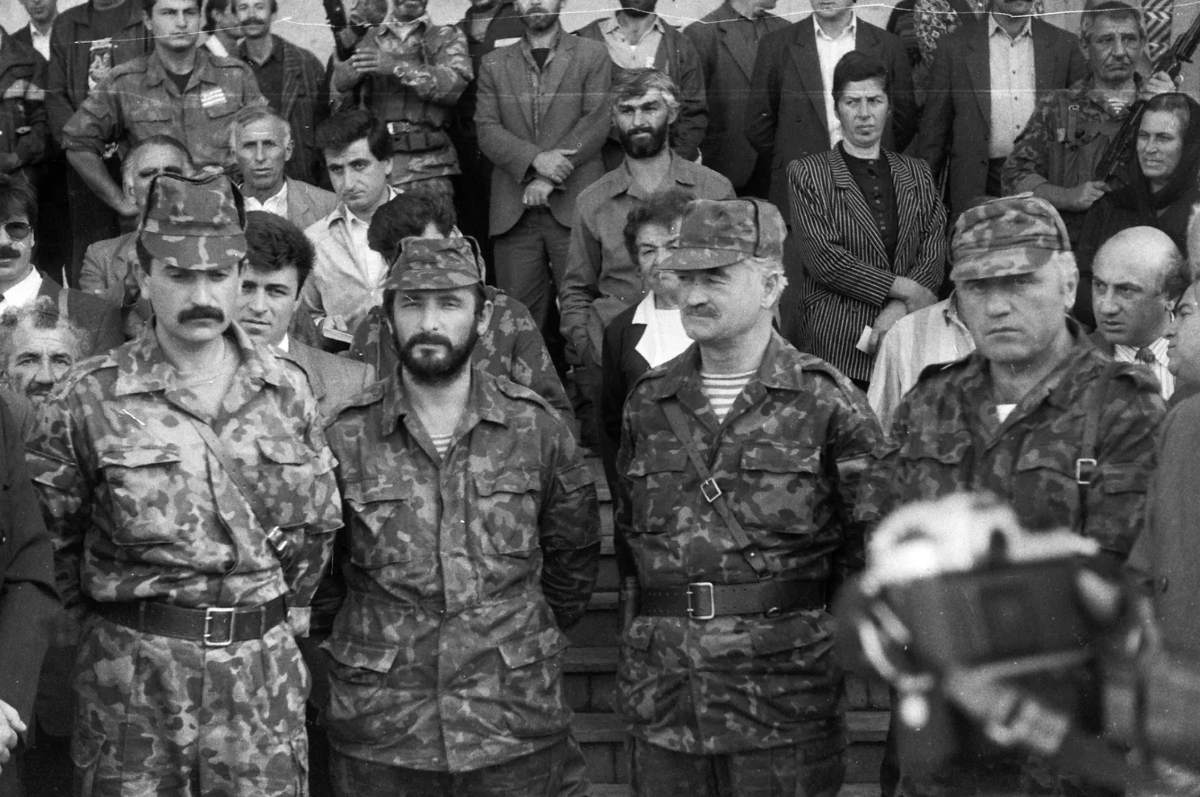
The Path to Abkhazia
After graduating from the military aviation school in Syzran and the Military Command Academy named after Georgy Zhukov, Sultan Sosnaliyev served for 29 years in the Soviet Air Defense Forces, progressing from a pilot to a regiment commander, and then to the head of an aviation centre. He became an Honoured Military Pilot of the USSR and was awarded the Order of the Red Banner of Combat.
After the creation of the Confederation of Mountain Peoples of the Caucasus, Sultan Sosnaliyev was entrusted with leading its military department. Actively involved in the activities of the Confederation, Sosnaliyev foresaw the “gathering clouds” over Abkhazia. He visited Abkhazia several times, meeting with Vladislav Ardzinba, travelled to Ingur on the border with Georgia, and surveyed the terrain in eastern Abkhazia, essentially conducting a mental reconnaissance of the directions from which Georgian troops could strike, writes military historian Valiko Pachulia in his article “The Commander” on the occasion of Sosnaliyev's 70th birthday.
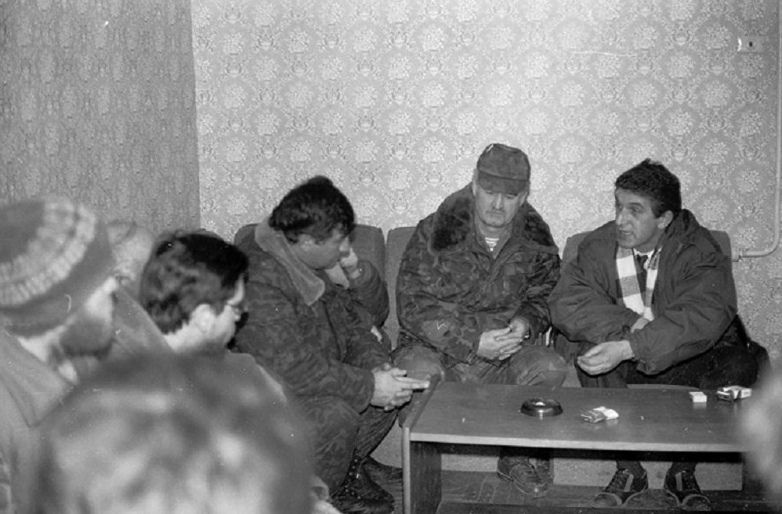
Following the Georgian State Council's troops' invasion of Abkhazia in August 1992, Sultan Sosnaliyev led the first volunteer units from Kabarda to aid Abkhazia. On the third day of the war, he stood in defence of Abkhazia. A bus carrying volunteers from Kabardino-Balkaria crossed the Psou River on the evening of August 15. “The Georgian landing party, which had by then landed near Tsandripsh, demanded the bus to stop. However, Sosnaliyev, quickly assessing the situation, commanded the driver: 'Go ahead!' And the bus sped past the Georgian militants and broke through the enemy military cordon. Thus, thanks to Sosnaliyev’s courage and decisiveness, the first volunteers were not captured by the occupiers,” the historian notes.
Upon arriving in Abkhazia, Sultan Sosnaliyev addressed the people of Abkhazia and the volunteers, declaring that the republic would be liberated from the occupiers. “The people of Abkhazia and the government will duly appreciate your contribution, your feat. We are here to protect our Abkhaz brothers, to shield them from the genocide that is currently being perpetrated. We are not fighting the civilian population; we are fighting against the aggressor who has come here. The enemy must be defeated, and the land of Abkhazia must be free,” Sultan Sosnaliyev said.
+ Sultan Sosnaliev (1942-2008): First Commander of the Mountain Peoples of the Caucasus
+ Sultan Sosnaliev: First Commander of the Mountain Peoples of the Caucasus, by Musa Shanibov
+ How nations united: Formation of the Confederation of Caucasian Peoples
Into Battle the Next Day
After arriving in Gudauta, Sultan Sosnaliyev took command of the Abkhaz people's militia headquarters the next day. Following the creation of the State Defense Committee on 18 August 1992, Colonel Sosnaliyev was appointed chief of staff. He organised the headquarters’ operations and formed armed units to be sent to the front.
General Sosnaliyev made a significant contribution to the plan to liberate the Gagra district from Georgian occupiers. After the establishment of the Ministry of Defense of Abkhazia on 2 October 1992, Sultan Sosnaliyev was appointed chief of staff and first deputy minister.
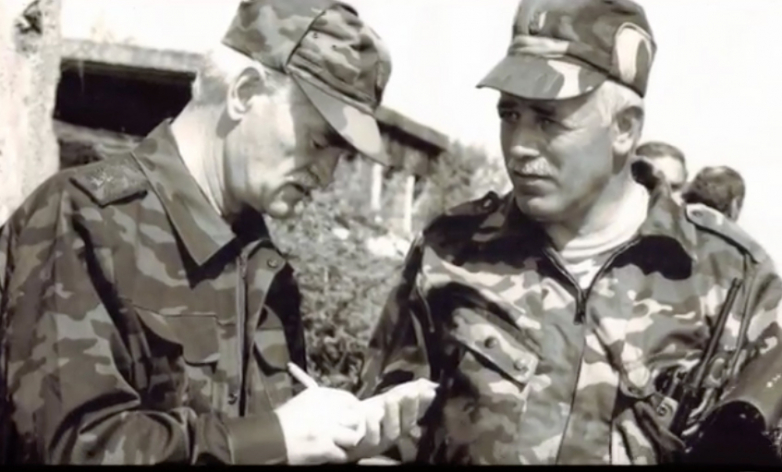
It turned out that Sultan Sosnaliyev was destined to head the Ministry of Defense in early April 1993. At that time, the head of the Ministry of Defense, Vladimir Arshba, was sent for treatment to Saint Petersburg, and Sultan Sosnaliyev assumed his duties. "Everyone understood that with Sultan Sosnaliyev's appointment, a decisive stage in the armed struggle was beginning. The commander faced very difficult tasks. He understood the feelings of the people and the army's desire to liberate the occupied part of the country as quickly as possible. At the same time, there was a lack of weapons, ammunition, and military equipment to accomplish this great strategic task in a short time," emphasises historian Valiko Pachulia.
The Decisive Offensive
Before the decisive offensive, General Sultan Sosnaliyev took into account the experiences of all prior operations. According to his strategy, it was necessary to break through the enemy's defence lines simultaneously in multiple directions. This approach ultimately proved to be crucial in securing victory. Led by Sosnaliyev, the Abkhazian army launched attacks on the enemy at the Shroma, Eshera, and Tamysh directions.
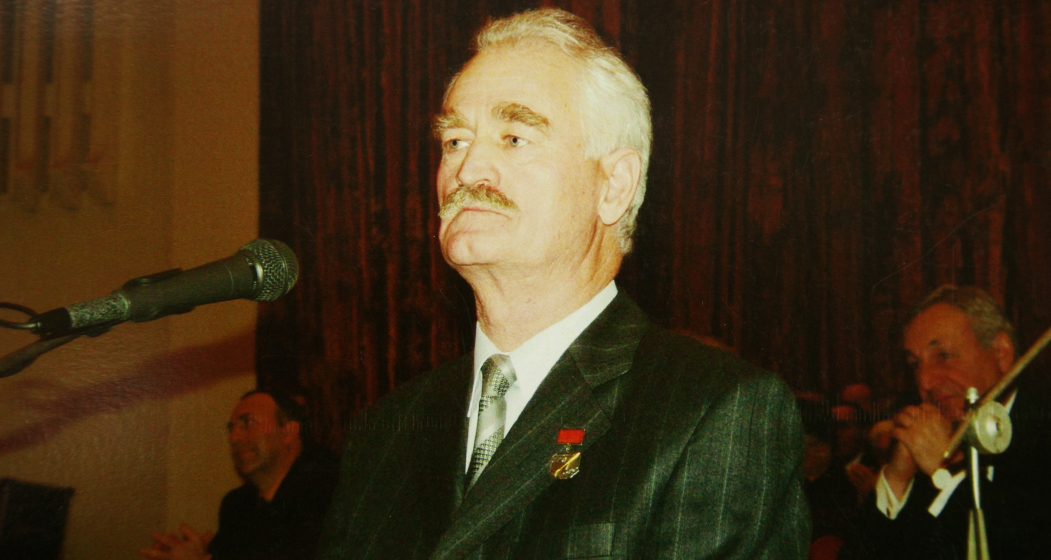
"The main focus was the Shroma direction. In the latter part of July, the advancing Abkhaz forces loomed over Sukhum, having captured strategic heights. It is important to note that Major General Sultan Sosnaliyev not only planned the operation but also, while directly at the command post of the Gumista front, actively engaged in the implementation of this plan. He led all the forces of the Gumista front and coordinated actions with the Eastern front, maintaining communication with its commander, Colonel Mirab Kishmaria," writes Pachulia.
On 27 September 1993, "for the successful military operation leading to the liberation of the city of Sukhum – the capital of the republic – and the occupied territory of Abkhazia," he was promoted to the rank of Lieutenant General. On 27 September 1994, "for his outstanding contribution to the creation of the Armed Forces of the Republic of Abkhazia and the subsequent defeat of the superior enemy forces," he was awarded the title of Hero of Abkhazia.
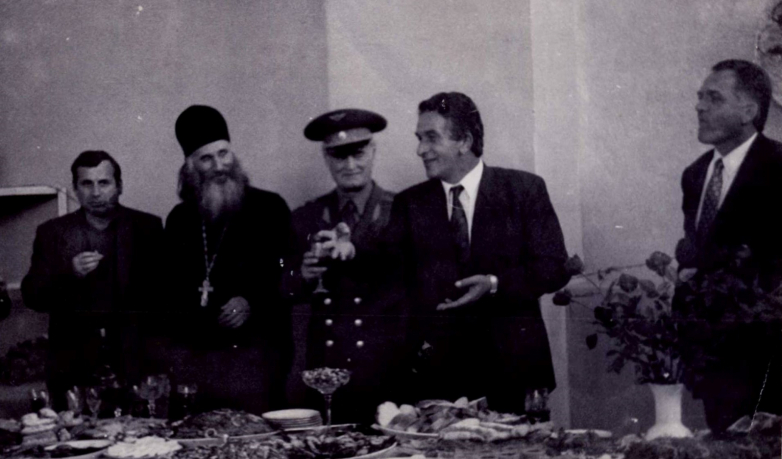
After the war, speaking of Sultan Sosnaliyev's significant contribution, President of Abkhazia Vladislav Ardzinba noted that he was at the origins of the republic's army creation.
"He went from chief of staff to the Minister of Defense of Abkhazia, from a colonel in the Soviet armed forces to a Lieutenant General of the Armed Forces of Abkhazia. I vividly remember his sleepless nights, his tired eyes, the difficult and strenuous operations. We went through all these trials together, and I always felt the fraternal support of Sultan Aslambekovich by my side," remarked Vladislav Ardzinba.
In 2005, President of Abkhazia Sergey Bagapsh appointed Sultan Sosnaliyev as the Minister of Defense and Vice Prime Minister of the Government of Abkhazia. In June 2007, he returned to his native Kabarda and worked in Nalchik.
Sultan Sosnaliyev passed away on 22 November 2008. He was buried in Kabardino-Balkaria, in the city of Baksan.